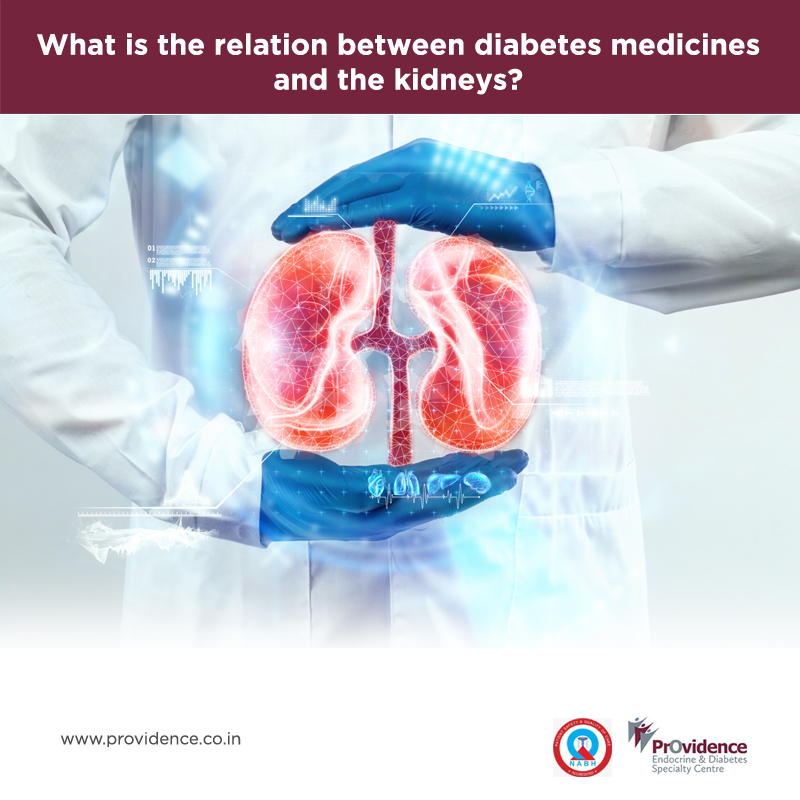It is well known that diabetes is one of the most common causes of developing kidney disease. But most often, it is thought that it is the diabetes medicines that are responsible for the development of kidney diseases. This is not true. Not only are diabetes medicines safe, but some medications even protect your kidneys. High blood glucose, uncontrolled hypertension, and smoking are responsible for increasing the risk of kidney disease. But once a person develops kidney disease, doctors may adjust the dose of many medications used. This is because many drugs are excreted out of the body by the kidney, and the blood levels of these drugs may increase in kidney disease. Therefore, some medications may need to be stopped or dosages adjusted according to the kidney functions of that person. (E.g., Pain killers (NSAID), Antibiotics).
Some of the newer classes of diabetes medications also prevent the progression of diabetic kidney disease. The most prominent among these are SGLT2 inhibitors, whose latest studies show they help treat diabetic kidney disease. The common drugs in this group are empagliflozin, dapagliflozin and canagliflozin. In addition, GLP-1 receptor agonists, another newer group of medicines too, can prevent the progression of diabetic kidney disease. The common drugs in this group are Liraglutide and Dulaglutide. Finally, a new drug class named Finerenone was recently approved for treating kidney disease in people with diabetes.
Author
Dr. Tittu Oommen



